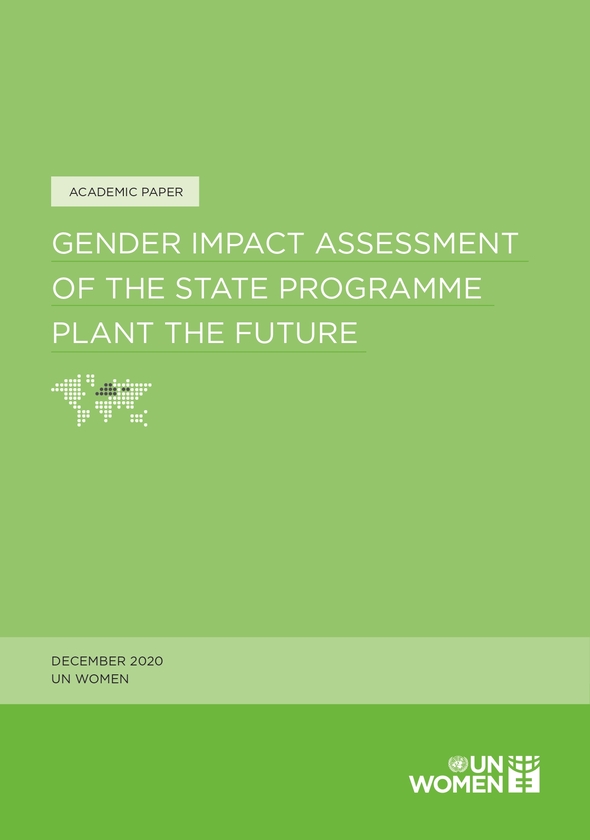
Gender Impact Assessment of the State Programme Plant the Future

The Gender Impact Assessment (GIA) of the programme Plant the Future was conducted by the ISET Policy Institute (ISET-PI) as part of its collaboration with UN Women within the scope of the project “Regulatory Impact Assessment and Gender Impact Assessment for Women’s Economic Empowerment in Georgia”. This study represents an ex-ante GIA of the programme Plant the Future initiated by the Ministry of Environmental Protection and Agriculture of Georgia (MEPA) and implemented by the Ministry’s Rural Development Agency (RDA). The programme was introduced by the MEPA in 2015 and runs in almost every region of the country. Plant the Future supports the development of nursery and perennial gardens in the regions and currently offers financial support/subsidies for three separate components: (1) perennial gardens; (2) nursery gardens; and (3) the installation of anti-hail systems and/or the arrangement of wells or borehole pumping stations.
One of the first findings of this GIA revealed that the Plant the Future programme’s objectives were, by and large, very general ones and, more often than not, lacked specifically defined gender objectives. Outcomes, outputs and indicators for this programme were also not gender-specific. The analysis also points to the fact that the policymakers perceive this programme (and those like it) to be gender-neutral and non-discriminatory as it allows the participation of everyone regardless of their sex and is, in their view, accessible for all of the target population groups and, at first glance, does not create deliberate barriers for potential participants.